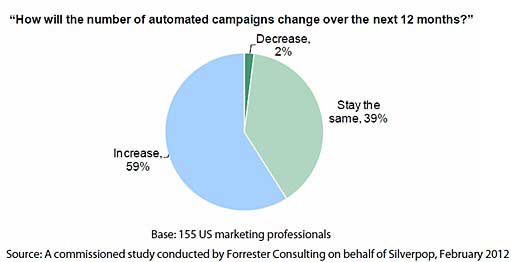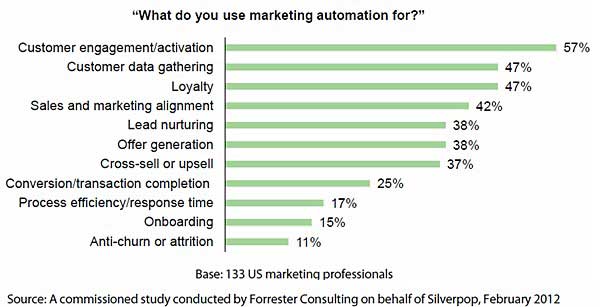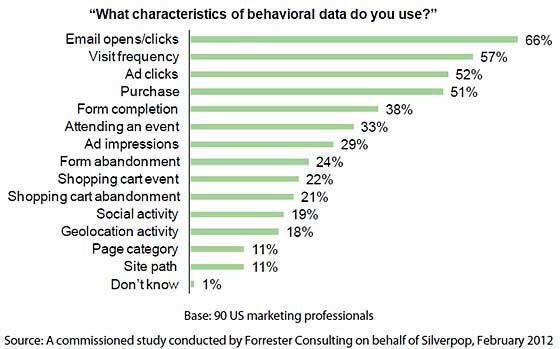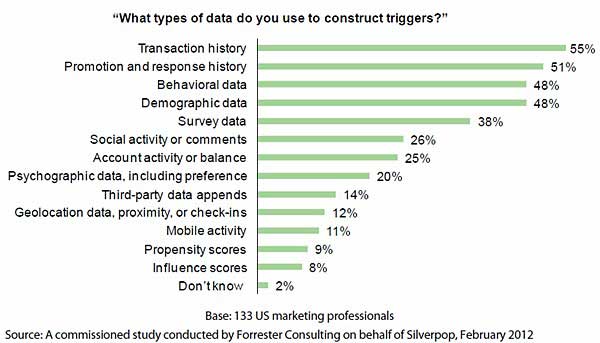Marketing automation is on the rise: 59% of senior marketers say they expect the number of automated campaigns to increase over the next 12 months, and 83% expect the use of marketing automation to improve the efficiency of their marketing processes, according to a report by Forrester Research and Silverpop.
Some 39% of senior marketers surveyed expect the number of automated campaigns to stay the same, and only 2% expect levels to decline.
There are skeptics, however: 14% of senior marketers say marketing automation will likely have no impact on process efficiency in 2012.
Below, additional findings from Automation: Redefining Marketing's Game Plan, a report conducted by Forrester for Silverpop.
Engagement and Data Gathering Top Marketers' Priorities
Asked how they use automation, 57% of senior marketers cite building customer engagement, 47% cite gathering customer data, and 47% cite improving customer loyalty.
More than one in three senior marketers use automated marketing for lead generation (38%) and cultivating cross-sell or up-sell opportunities (37%).
However, marketers newer to automation (using automation for four years or less) say they use the tool for customer activation and data gathering. By contrast, mature users (5+ years) focus on lead nurturing, cultivating cross-sell and up-sell opportunities, and conversion completion, according to the study.
Campaign Types
Among senior marketers, campaigns that reoccur, as well as those triggered by certain behaviors, are among the most popular:
- 65% now use reoccurring campaigns, and 67% expect to do so in the next 12 months.
- 53% now use behavioral data to trigger automated messages, and 66% expect to do so in the next 12 months. That's up roughly 13% over the 12-month period.
Measurement Strategies
Though marketers need to show that technology investments deliver business impact, most focus primarily on basic response metrics (80%), such as email opens and clicks, whereas roughly half that proportion focus on incremental improvements to lead generation (41%) and revenue (40%).
Key Metrics
Specifically, two in three (66%) senior marketers track email opens and clicks, 57% track the frequency of customer visits, and 52% track ad clicks.

Some 19% of senior marketers track social media activity; even fewer track page category (11%) and site path (11%) information.
Pragmatic Approaches to Triggers
Regarding marketing triggers, most senior marketers focus on transaction history (55%) and promotion response history (51%), while nearly one-half have added behavioral (48%) and demographic (48%) data to the mix.

More than one in three (38%) senior marketers tap survey data, but far fewer use information regarding preferences (20%), propensity scores (9%) and influence scores (8%).
About the data: Findings are from a survey of 155 US-based senior marketing professionals conducted by Forrester Research, for Silverpop, In January 2012.



